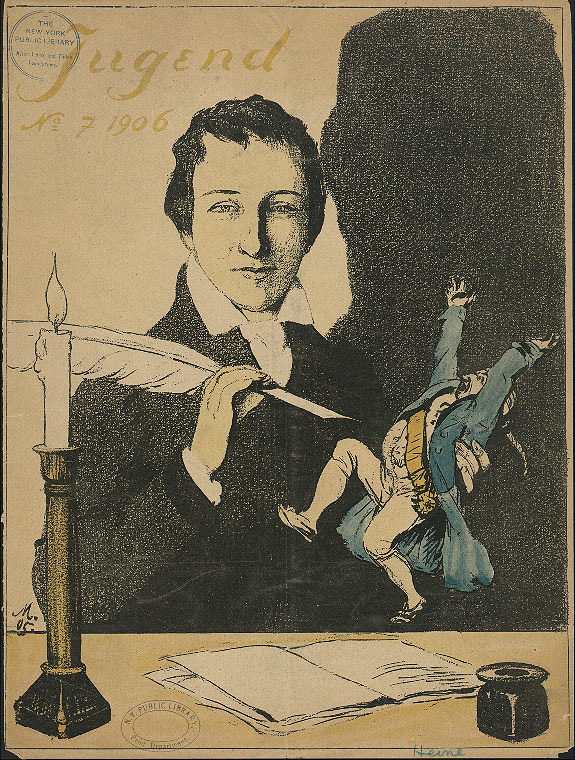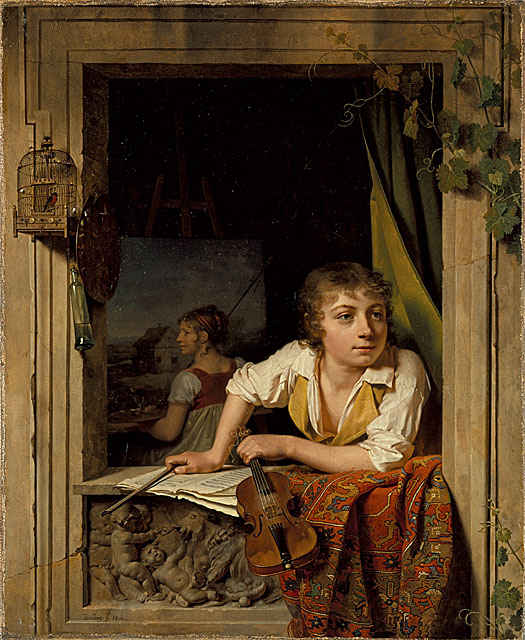Everybody Knows the Good Guys Lost
Heinrich Heine ( 1797-1856) was a German poet, known as the last great king of romanticism.Heine is regarded as a great prose stylist and articulate lyrical poet.His lyricism is informed by great simplicity and accessibility bathed in an ardent and melancholy disposition. The literary tension in his work is derived by a simultaneous enchantment with the world of illusion coupled with an equally profound disillusionment .He harbored a love-hate relationship with German romanticism and spent the last 25 years of his life in exile in France .Heine became a central figure of the French literary and cultural scene and was friends with Delacroix and Victor Hugo.
Heine’s exile was a permanent Babylon. Germany at that period, could be described as a carnival of hate filled with an empty euphoria fueled by the passions of war. Like other writers in exile, such as Solzhenitsyn and Nabokov, their is a relationship between memory and forgetting, of being caught between personal appeasement and a historical retribution.
At the same time there is an ease of looking in on the outer world while taking aim at an inner personal world. Heine was part of German cultural history, yet was not a participant or celebrator of it. Heine was a poet without a country for a country without poets. His books were banned in Germany after 1835, by a government more guided by the beauty of its weapons than the lyricism of its arts.
Heine lived through the deep recesses of romanticism and recorded what he saw with stark clarity, navigating between, and distinguishing among the boundaries between dream and reality, with both grace and accuracy. Heine personified romanticism and its escapist tendencies to flee an increasingly complex and industrialized world to the simplicity and purity of nature. He would find the beauty within darkness within romanticisms larger ”revolt of the spirit”, a system of thought not disimilar to the modern goth movement.
The folk like imagery was used to extend the remit of romanticism , but Heine introduced conversational terms and commercial language within the existing poetic conventions to expand its language. He may be considered one of the first modern intellectuals because of the weight he gave to social significations in his writings.Despite the glorification of nature, Heine was basically a pessimist, as if his work was predestined to amble towards inevitable tragic endings.
Heine had prescient views of German society and the evolution of this narrative resulted in remarkable prophecies regarding the re-emergence of the ”brutal Germanic love of war”. In his own words in 1834, ‘‘A play will be performed in Germany which will make the French revolution look like an innocent idyll.” The Nazis banned, then incinerated Heine’s books. At the Berlin book burning memorial at Babylon Plaza ( Babelplatz), a quote of Heine’s is inscribed on a plaque: ‘‘Where they burn books they will ultimately also burn people”.


